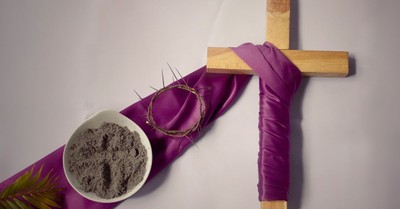2 Kings 20:8-20
8 And Hezekiah said unto Isaiah, What shall be the sign that Jehovah will heal me, and that I shall go up unto the house of Jehovah the third day? 9 And Isaiah said, This shall be the sign unto thee from Jehovah, that Jehovah will do the thing that he hath spoken: shall the shadow go forward ten steps, or go back ten steps? 10 And Hezekiah answered, It is a light thing for the shadow to decline ten steps: nay, but let the shadow return backward ten steps. 11 And Isaiah the prophet cried unto Jehovah; and he brought the shadow ten steps backward, by which it had gone down on the dial of Ahaz.
Hezekiah Receives Envoys from Babylon
12 At that time Berodach-baladan the son of Baladan, king of Babylon, sent letters and a present unto Hezekiah; for he had heard that Hezekiah had been sick. 13 And Hezekiah hearkened unto them, and showed them all the house of his precious things, the silver, and the gold, and the spices, and the precious oil, and the house of his armor, and all that was found in his treasures: there was nothing in his house, nor in all his dominion, that Hezekiah showed them not. 14 Then came Isaiah the prophet unto king Hezekiah, and said unto him, What said these men? and from whence came they unto thee? And Hezekiah said, They are come from a far country, even from Babylon. 15 And he said, What have they seen in thy house? And Hezekiah answered, All that is in my house have they seen: there is nothing among my treasures that I have not showed them. 16 And Isaiah said unto Hezekiah, Hear the word of Jehovah. 17 Behold, the days come, that all that is in thy house, and that which thy fathers have laid up in store unto this day, shall be carried to Babylon: nothing shall be left, saith Jehovah. 18 And of thy sons that shall issue from thee, whom thou shalt beget, shall they take away; and they shall be eunuchs in the palace of the king of Babylon. 19 Then said Hezekiah unto Isaiah, Good is the word of Jehovah which thou hast spoken. He said moreover, Is it not so, if peace and truth shall be in my days?
The Death of Hezekiah
20 Now the rest of the acts of Hezekiah, and all his might, and how he made the pool, and the conduit, and brought water into the city, are they not written in the book of the chronicles of the kings of Judah?



.jpg)
Matthew Henry's Commentary on 2 Kings 20:8-20
Commentary on 2 Kings 20:1-11
(Read 2 Kings 20:1-11)
Hezekiah was sick unto death, in the same year in which the king of Assyria besieged Jerusalem. A warning to prepare for death was brought to Hezekiah by Isaiah. Prayer is one of the best preparations for death, because by it we fetch in strength and grace from God, to enable us to finish well. He wept sorely: some gather from hence that he was unwilling to die; it is in the nature of man to dread the separation of soul and body. There was also something peculiar in Hezekiah's case; he was now in the midst of his usefulness. Let Hezekiah's prayer, see Isaiah 38. interpret his tears; in that is nothing which is like his having been under that fear of death, which has bondage or torment. Hezekiah's piety made his sick-bed easy. "O Lord, remember now;" he does not speak as if God needed to be put in mind of any thing by us; nor, as if the reward might be demanded as due; it is Christ's righteousness only that is the purchase of mercy and grace. Hezekiah does not pray, Lord, spare me; but, Lord, remember me; whether I live or die, let me be thine. God always hears the prayers of the broken in heart, and will give health, length of days, and temporal deliverances, as much and as long as is truly good for them. Means were to be used for Hezekiah's recovery; yet, considering to what a height the disease was come, and how suddenly it was checked, the cure was miraculous. It is our duty, when sick, to use such means as are proper to help nature, else we do not trust God, but tempt him. For the confirmation of his faith, the shadow of the sun was carried back, and the light was continued longer than usual, in a miraculous manner. This work of wonder shows the power of God in heaven as well as on earth, the great notice he takes of prayer, and the great favour he bears to his chosen.
Commentary on 2 Kings 20:12-21
(Read 2 Kings 20:12-21)
The king of Babylon was at this time independent of the king of Assyria, though shortly after subdued by him. Hezekiah showed his treasures and armour, and other proofs of his wealth and power. This was the effect of pride and ostentation, and departing from simple reliance on God. He also seems to have missed the opportunity of speaking to the Chaldeans, about Him who had wrought the miracles which excited their attention, and of pointing out to them the absurdity and evil of idolatry. What is more common than to show our friends our houses and possessions? But if we do this in the pride of ours hearts, to gain applause from men, not giving praise to God, it becomes sin in us, as it did in Hezekiah. We may expect vexation from every object with which we are unduly pleased. Isaiah, who had often been Hezekiah's comforter, is now is reprover. The blessed Spirit is both, John 16:7,8. Ministers must be both, as there is occasion. Hezekiah allowed the justice of the sentence, and God's goodness in the respite. Yet the prospect respecting his family and nation must have given him many painful feelings. Hezekiah was indeed humbled for the pride of his heart. And blessed are the dead who die in the Lord; for they rest from their labours, and their works do follow them.